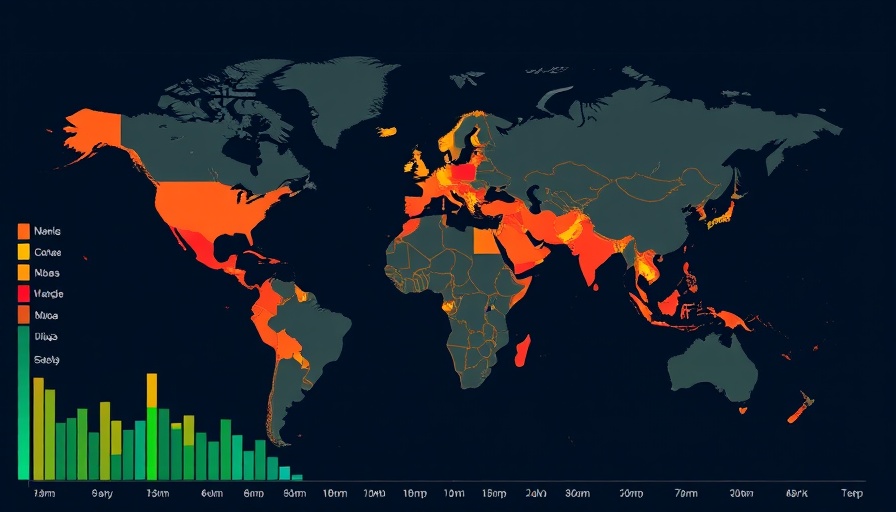
Is Your Milk Intake Impacting Your Health?
Recent research highlights a troubling trend: countries with low milk consumption are witnessing a rise in colorectal cancer cases. As professionals, athletes, and fitness enthusiasts, the implications of this study are especially pertinent—underscoring the connection between dietary choices and long-term health outcomes.
Connecting Diet and Disease: The Nutritional Gaps
The study suggests that low milk intake may contribute to the emerging burden of colorectal cancer. This finding provokes critical questions about dietary habits. If you're among the many who have diminished milk in their diets due to concerns about dairy or lower calorie counts, it's time to reevaluate these choices. Milk is a rich source of calcium and vitamin D, nutrients that have been linked to cancer prevention.
The Broader Picture: What Statistics Show
The increase in colorectal cancer reflects broader dietary trends across different regions. In nations like the United States, where dairy consumption remains relatively high, statistics show lower incidences. Conversely, countries with dietary restrictions on dairy are reporting significant increases in colorectal cancer cases.
Understanding Colorectal Cancer: Facts and Figures
According to the World Health Organization, colorectal cancer is the third most common cancer worldwide, with over 1.9 million new cases every year. While genetics play a role, lifestyle—and diet, in particular—has been identified as a significant risk factor.
Taking Action: How to Enhance Your Diet
So, what can you do? Here are some actionable insights to fortify your health and possibly reduce your risk:
- Incorporate dairy alternatives: If traditional milk isn’t your choice, consider fortified almond milk, soy milk, or oat milk, which often contain additional vitamins and minerals.
- Eat a balanced diet: Focus on high-fiber foods such as fruits, vegetables, nuts, and whole grains that are beneficial for gut health.
- Regular screenings: For men aged 45 and over, regular screenings can be vital for early detection.
Why Milk Matters: The Nutritional Breakdown
From protein to probiotics, milk offers numerous benefits that support overall health. Calcium plays an essential role in maintaining bone health and muscle function, while vitamin D aids in calcium absorption and contributes to immune health. With low milk intake, these nutritional components may be lacking, heightening the risk of certain diseases.
Hear It from the Experts: Insights from Nutritionists
Nutritionists are increasingly vocal about the importance of dairy in providing necessary nutrients for overall wellness, especially for those leading active lifestyles. They encourage a reevaluation of food choices that prioritize nutrient density over calorie counts.
Conclusion: Choose Wisely for Your Health
Understanding the link between dietary choices and health is crucial. By prioritizing nutrient-rich foods—including a reasonable intake of milk or alternatives—you can take proactive measures to enhance your health and potentially reduce your cancer risk. For further exploration of nutrition and health, consider joining community workshops or nutrition classes that focus on sustainable and health-focused dietary choices.
If you want to take charge of your health, consider incorporating more nutrient-dense foods into your diet. Stay informed and proactive for a healthier lifestyle!
 Add Row
Add Row  Add
Add 




Write A Comment